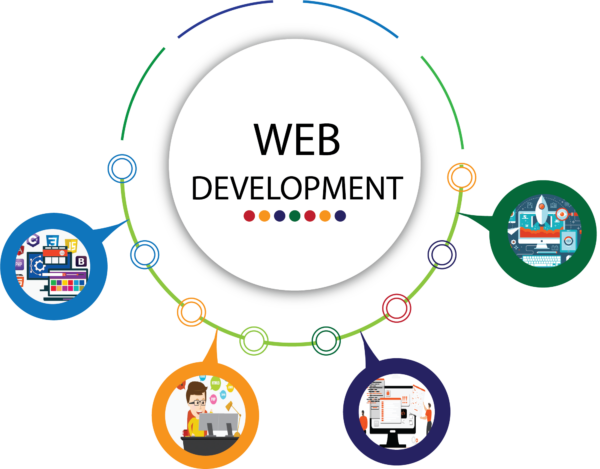Web development stands as the backbone of the internet, a broad term encompassing the work involved in developing websites for hosting via intranet or internet. The process includes web design, web content development, client-side/server-side scripting, and network security configuration.
Exploring the Depths of Web Development
Web development is a field that combines creativity and technical expertise to build and maintain websites and web applications. It covers everything from simple single static pages of plain text to complex web-based internet applications, electronic businesses, and social network services. The main tasks of web development are divided into front-end (client-side) and back-end (server-side) development. Front-end developers focus on the aspects of a website that users interact with, using HTML, CSS, and JavaScript. Back-end developers work on the server, database, and application integration.
Key Features of Web Development
- User Experience (UX) Design: Crafting sites that provide meaningful and relevant experiences to users.
- Responsive Design: Ensuring websites function across various devices and screen sizes.
- Speed and Performance: Optimizing loading times and interaction speed.
- Security: Implementing measures to protect websites from cyber threats.
- SEO Optimization: Enhancing website visibility in search engine results.
Types of Web Development
| Type | Description |
|---|---|
| Front-End | Involves the visual aspects of the website that users interact with. |
| Back-End | Focuses on server, application, and database management. |
| Full Stack | Encompasses both front-end and back-end development skills. |
| DevOps | Combines software development (Dev) with IT operations (Ops). |
Applications of Web Development
- E-commerce Platforms: Online stores and marketplaces.
- Content Management Systems (CMS): Tools for creating, managing, and modifying website content.
- Social Media Networks: Platforms for social interaction and content sharing.
- Educational Websites: Online learning platforms and resources.
Challenges in Web Development and Solutions
Challenges
- Cross-browser Compatibility: Ensuring consistent function across different web browsers.
- Website Security: Protecting against cyber-attacks and data breaches.
- Performance Optimization: Balancing high-quality content and fast load times.
Solutions
- Use of Progressive Enhancement: Starting with a basic, functional website and enhancing it based on the capabilities of the browser.
- Regular Security Updates: Applying the latest security patches and practicing secure coding standards.
- Efficient Code and Asset Optimization: Minimizing code and using compression tools to improve loading times.
Comparative Analysis in Web Development
| Feature | Web Development | Software Development |
|---|---|---|
| Focus | Websites and web applications | Desktop and mobile applications |
| Languages | HTML, CSS, JavaScript | C#, Java, Swift |
| Development Tools | Text editors, browsers | Integrated Development Environments (IDEs) |
| User Interaction | Primarily through web browsers | Directly with the application |
Future Trends in Web Development
- Progressive Web Apps (PWAs): Blurring the line between web and mobile apps.
- Artificial Intelligence and Bots: Enhancing user interactions and backend operations.
- Blockchain Technology: Increasing security and transparency in web transactions.
The Role of VPN in Web Development
A Virtual Private Network (VPN) can be indispensable for web developers in several ways:
- Secure Remote Access: VPNs allow developers to securely access their work environment from any location, protecting sensitive data.
- Testing Geo-specific Features: Developers can use VPNs to test web applications in different geographical regions.
- Bypassing Geo-restrictions: Accessing web resources that are restricted in certain countries.
Resources for Further Exploration
- Mozilla Developer Network (MDN): A comprehensive resource for web development standards and best practices.
- W3Schools: Offers tutorials and references on web development languages.
- GitHub: A platform for hosting and reviewing code, managing projects, and building software alongside millions of developers.
This guide serves as an entry point into the vast and dynamic field of web development, emphasizing the importance of continuous learning and adaptation to new technologies. Whether you’re interested in the creative aspects of front-end development or the technical challenges of back-end and full-stack development, the resources and perspectives outlined above provide a foundation for your journey in web development.


